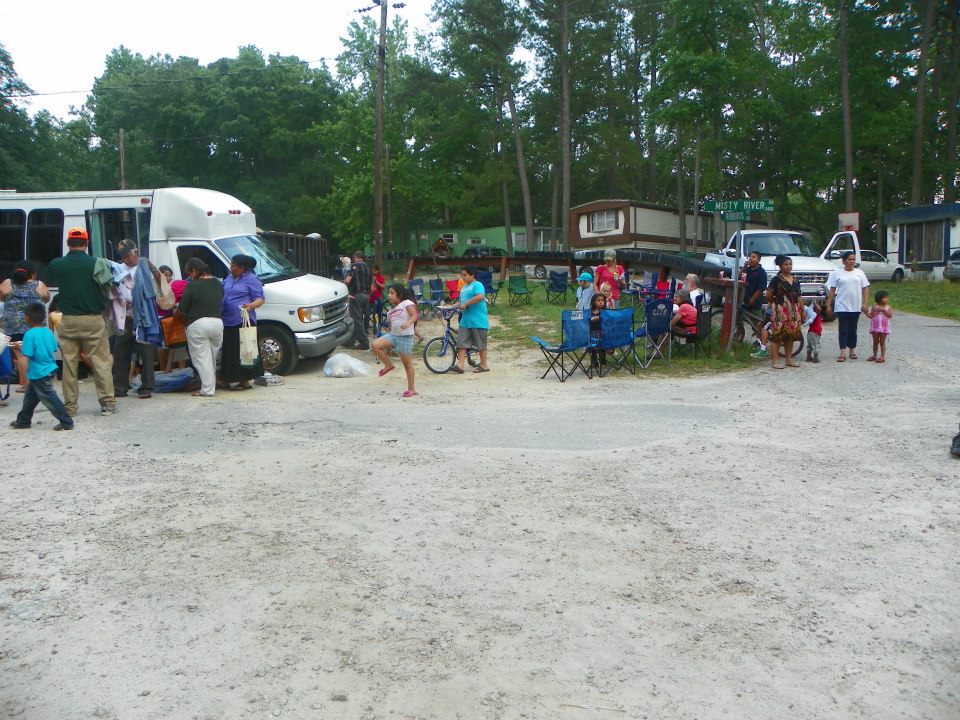
James Borden / Raleigh Public Record
Shana Overdorf gave a presentation on the homeless in Wake County at the June 18 CAC Meeting
Despite this decline, Overdorf emphasized that there still remains a lot of work to be done.
Of the issue of homelessness in the United States, she said, “It came to a head in 2005, when the government required that all communities have a ten-year action plan to end homelessness. We adopted one here in 2005.
“Well it’s ten years later and we haven’t ended homelessness,”
Of the 887 homeless — which does not include people staying with friends, or living in a motel room they are paying for, 123 are veterans. 494 are men, 386 were women.
Overdorf noted that these figures only included those whom they were able to count, and who met the criteria of being homeless as set by the federal government. The numbers also come from a count done one night in January. The actual number of homeless in Wake County, she said, could be as high as four times the official number.
The number of women now homeless was a significant cause for concern, Overdorf said, as it had grown much faster than the overall rate of homelessness in the area.
The Roots of Homelessness
Overdorf explained that people become homeless for a variety of reasons, not all of them obvious.
They include factors such as under and unemployment, generational poverty, addiction and a decline in public assistance.
Overdorf said many homeless people are ones transitioning out of foster homes, jails and hospitals. The most common face of homelessness, she said, was mental illness.
“A lot of homeless people though, you’d be shocked,” she said.
Alice McGee, the pastor at Church in the Woods, an outreach program that serves to help the homeless, said she had seen more causes for homelessness than people could imagine.
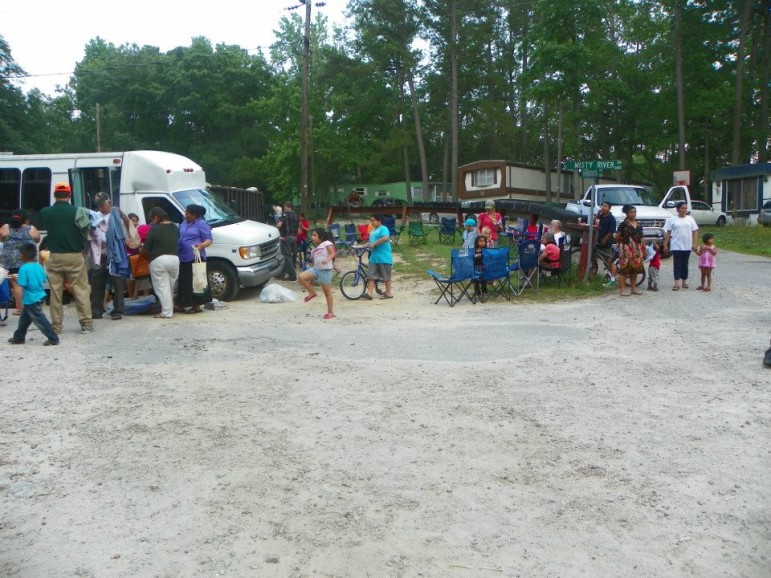
Church in the Woods
Church in the Woods
Many of the cases she deals with, however, are much more tragic.
“One guy was a terrible addict, and I asked him, ‘How did you get so addicted to heroin? How long have you been addicted?’
“Well I’ve been a heroin addict since I was four years old.”
The man’s mother, McGee explained, worked nights, and would shoot her children up with heroin to make sure they remained asleep while she was gone.
“One lady we found her living in a large doghouse; it was the only place she could go to curl up and sleep,” McGee said.
The Homeless and Law Enforcement
Office Ken Koswaller with the Raleigh Police Department said one of the things they work to do is direct people toward the many resources available in the community.
When a complaint is called in on an a homeless individual, Koswaller said the police work to identify the individual, and then determine whether the property is private, public posted, city or county. Depending on the type of property, the police have to take slightly different measures.
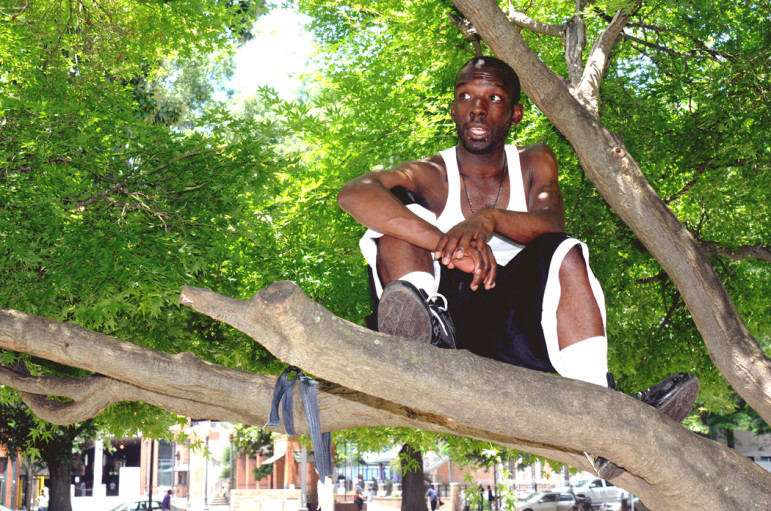
Karen Tam / Raleigh Public Record
Tony Smith from Georgia, stays cool up in a tree in Moore Square.
The property owner, then, became responsible for clearing the two dwellings which had been constructed there.
Many of the complaints, however, revolve around quality of life laws such as trespassing, begging, ABC and controlled substance violations and disorderly conduct, Koswaller said.
The police must then determine whether a crime has been committed, and decide whether to issue a warning, citation or arrest the individual.
The Homeless and the Community
Co-Chair of the Atlantic CAC Charity VanHorn helped to organize the panel on homelessness for the June 18 meeting.
VanHorn also came prepared with a series of questions for those panelists, such as Officer Koswaller.
“I live in Pine Knolls, and the property behind Adventure Landing is private property, and I don’t if anyone back there has reached out to the church or have you walked the grounds to see if anybody’s there?”
Koswaller said to his knowledge there were no longer any homeless individuals staying on that piece of land.
VanHorn also wanted to know what to do when a homeless person leaves some of their belongings on her property, saying she doesn’t want to throw it away, but that she doesn’t just want to leave it sitting there either.
“I feel bad getting rid of your stuff if that’s all you have,” she said.
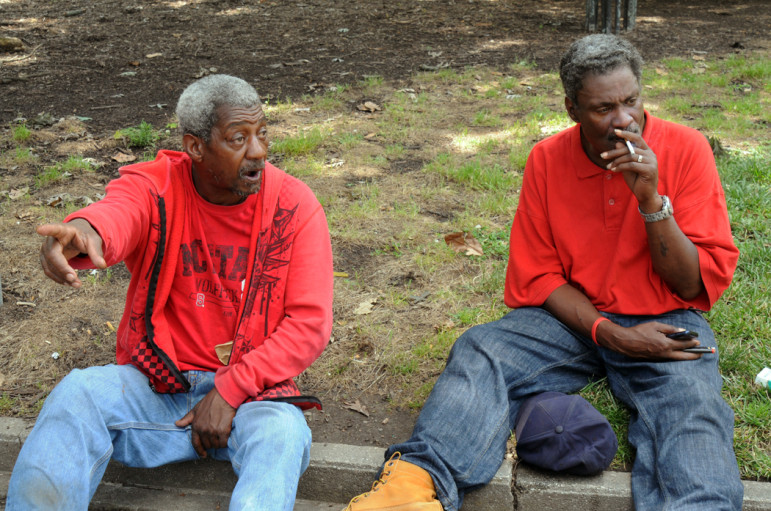
Karen Tam / Raleigh Public Record
Sitting on the grass in Moore Square, Larry Underwood, left, says he sleeps outdoors and Samuel L. Johnson, right, has a place to live on Avent Ferry Road.
VanHorn requested a copy of the small services information card that Raleigh Police distribute to the homeless in order to get them started down a path of finding a more permanent living situation.
Future Plans
Chief among the county’s plans to combat homelessness is a plan for a new multi-services center that would provide a wide range of services to the homeless — from mental health services to showers, laundry, storage space and ore.
Overdorf said the center was crucial to the county’s long-term solution, and that it was one they spent 15 months of research on, which included looking at other, similar facilities across the nation.
Many of its key features are ones that may not occur to those who don’t work with the homeless on a regular basis, such as the need for storage space.
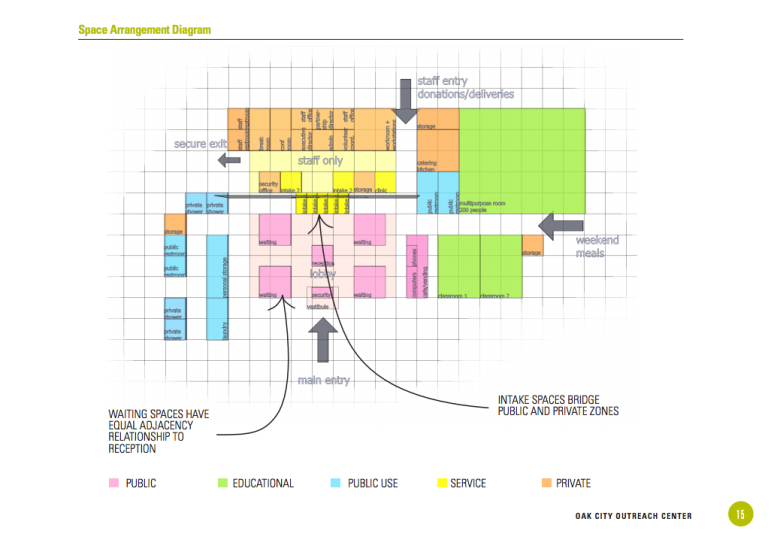
Partnership to End Homelessness
Plans for the Multi-Service Center
In addition, she said there are plans in the works to build a tiny-home community, where now-homeless individuals would be able to afford to live and have a roof over their heads.
“We could save $30,000 per homeless person per year if we had a functional system in place,” she said, noting the high costs of sending the homeless to hospitals and jails at the taxpayer’s expense.
